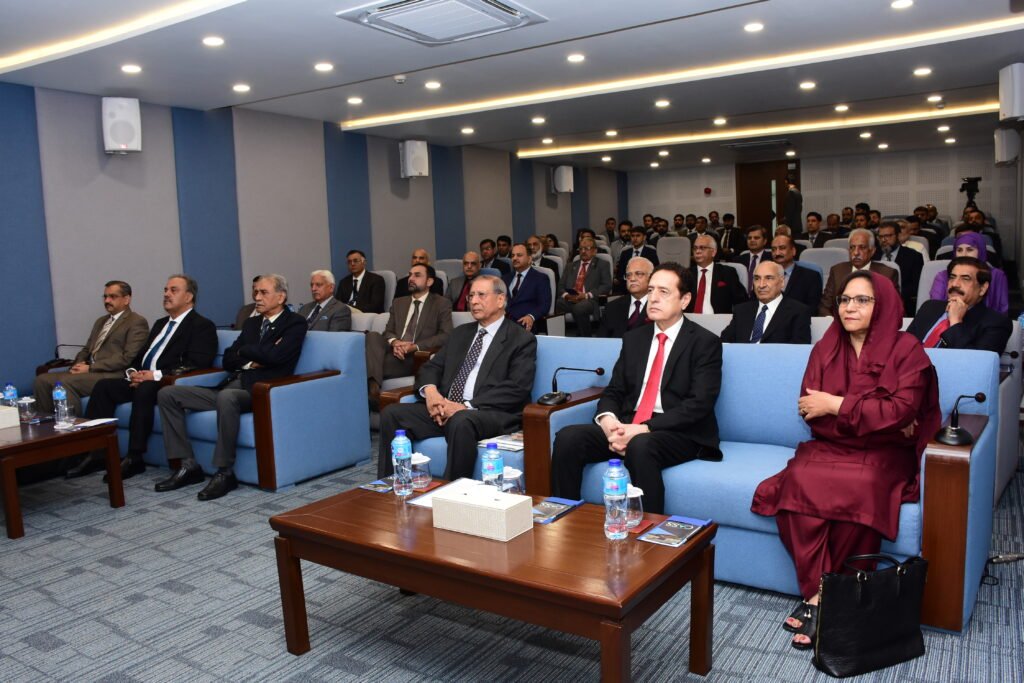
Seminar
Pakistan’s Foreign Policy Choices in the Evolving Global Order
About The Event
The world is passing through a period of strategic turbulence and is in the midst of an era characterised by uncertainty and unpredictability. The global order is at a point of inflection. The most notable global developments include the rise of China, an assertive and defiant Russia, and the erosion of American preponderance. Rising geopolitical tensions and global economic volatility are keeping the world in an unstable state.
The United States views China as “the only competitor with both the intent and, increasingly, the capability to reshape the international order” and wants to constrain a resurgent Russia. The US has deepened its core alliances in Europe and the Indo-Pacific. The Indo-Pacific region has emerged as a key theatre of US-China rivalry. Russia’s invasion of Ukraine has renewed an East-West rivalry and has created unprecedented tensions in Europe. The Ukraine war has also created a tumult in the international commodity prices and the impact is felt far and wide.
India’s strategic and economic partnership with the US continues to deepen. India is relentlessly piling up military acquisitions, enhancing conventional weapons’ asymmetries. Under Mr. Narendra Modi’s government, India’s attitude towards Pakistan has remained hostile. After India’s illegal and unilateral actions of August 5, 2019, Pakistan downgraded its relations with India. The stalemate continues to persist.
The Taliban regime in Afghanistan remains internationally isolated since it came into power in August 2021 and the Afghans continue to suffer. In recent times, there has been a significant rise in attacks by elements belonging to the Tehreek-e-Taliban Pakistan (TTP) from across the border. The Afghan conundrum poses a challenge to Pakistan.
The dynamics of the Middle East are shifting. The futuristic worldview of Saudi Arabia has led to a more pragmatic approach.
Despite its historic partnership with the US, Saudi Arabia has gradually built closer ties with China and a partnership with Russia in OPEC+. The recent rapprochement with Iran has huge potential, raising hopes for eventual peace in Syria, Lebanon, and Yemen.
Years of mismanagement and lack of meaningful reforms have weakened Pakistan, making it dependent on others. In the evolving global order and because of serious internal weaknesses, Pakistan’s foreign policy challenges have become more complex. This seminar explored and suggested possible foreign policy options for Pakistan.
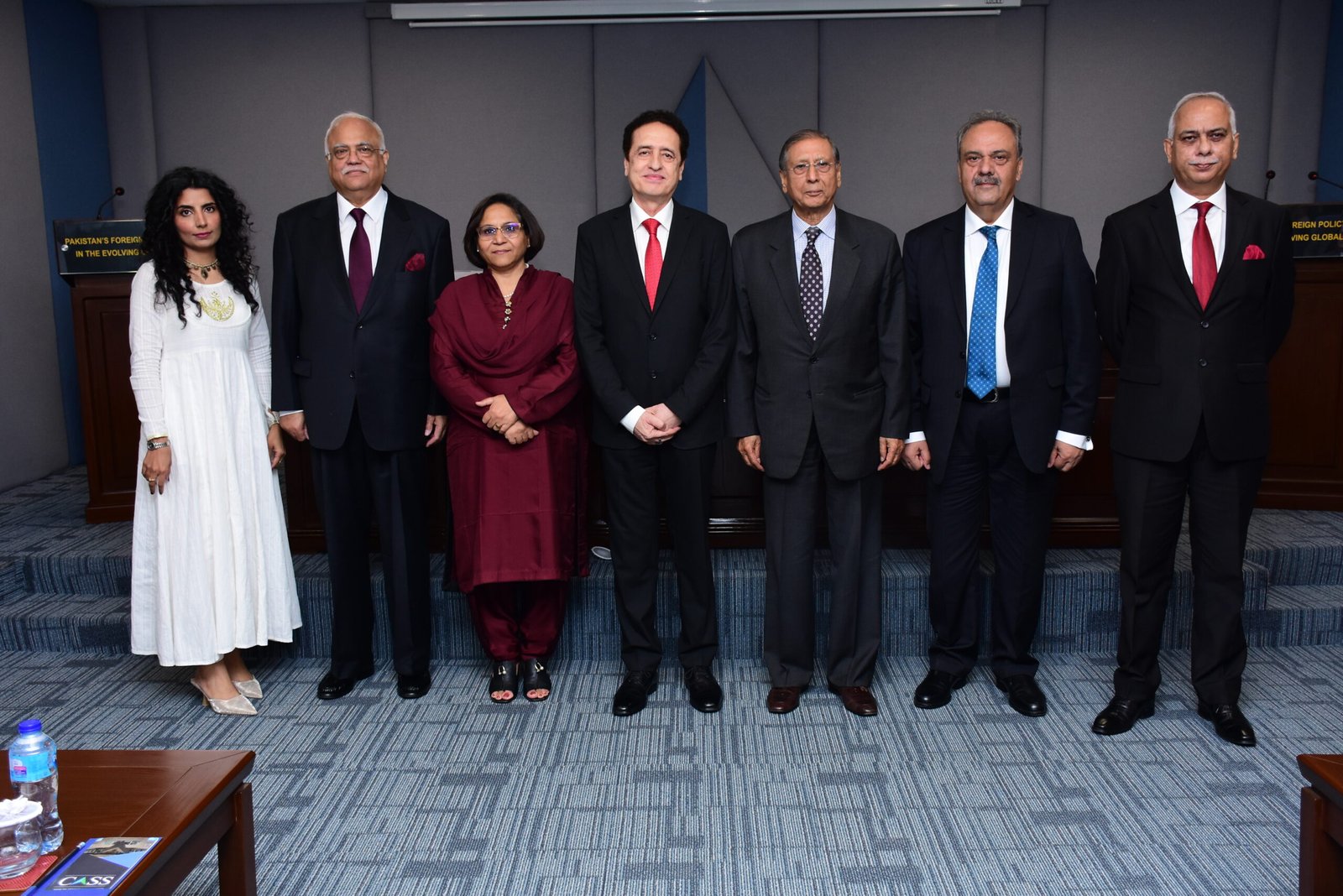
Key Takeaways
Contours of Evolving Global Order
- The world is in a state of strategic flux, with an unpredictable and inhospitable international environment; power shifts are taking place at the global and regional levels; geopolitical tensions are on the rise; increasingly, power politics is defining international politics rather than international law, and as a result, diminishing the authority of the UN on strategic issues of war and peace. Moreover, nationalistic tendencies are on the rise. The global economic volatility is keeping the world in an unstable state. Today, economic and technological power has assumed primary importance in determining the position of a country.
Rise of China and Sino-US Rivalry
- The dramatic rise of China has posed a serious challenge to the US global supremacy.
- The US National Defence Strategy (27 October, 2022) states that China “presents the most consequential and systemic challenge” to the US.
- The US is now firmly committed to the policy of containment of China.
US-India Strategic Partnership
- In the face of surging US-China tensions, India has become a key strategic partner of the US.
A Web of Alliances in Indo-Pacific
- The US is strengthening its alliances in the Indo-Pacific region.
- Its strategic partnership with India, the revival of the Quad, the establishment of AUKUS, US economic and trade sanctions against China, and US efforts to incite political instability in China are part of its policy of containment of China.
- The world is likely to witness a period of intense strife between the US and China.
Re-assertive Russia and Sino-Russian Strategic Cooperation
- The emergence of a re-assertive Russia under President Vladimir Putin is noteworthy.
- The growing Sino-Russian strategic cooperation has obvious implications for the global order.
- Ukraine crisis has diverted to some extent the attention and resources of the US-led West from China to Europe.
- This diversion, at least temporarily, may reduce the West’s pressure on China.
A Multipolar World
- The global order is also gradually evolving towards a multipolar world.
- In the emerging multipolar world, besides US and China, several other powers like India, Indonesia, Brazil, Nigeria, Russia, Japan, and Turkey will play an increasingly important role in dealing with international issues of global concern.
China: An All-Weather Strategic Partner
- Without any doubt, China is Pakistan’s sincere and steadfast strategic partner.
- Keeping in view our peculiar security environment, it is essential to strengthen strategic partnership with China.
- There is an imperative need to remove any impediments or irritants and strengthen our cooperation with our all-weather friend, China.
Strategic Importance of CPEC
- CPEC is the key to Pakistan’s economic development and connectivity.
- It is critically important for BRI. All other corridors are East-West while CPEC is the only North-South corridor, giving land access to China to the Arabian sea, bypassing the Strait of Malacca.
- If US-China confrontation comes to the Indian Ocean, Pakistan could be directly involved. This is where CPEC and Gwadar port become very important, making Pakistan strategically important but also vulnerable.
Readjustment of Ties with the US
- Despite the growing strategic ties between the US and India, US and Pakistan need each other.
- A recalibration of Pakistan-US relations is necessary. The focus should shift to trade and investments, futuristic technologies, education, industrial development, agricultural productivity, climate change and sustainable development.
Balanced Approach in Relations with Great Powers
- Pakistan needs to balance its vital security and economic links with its strategic partner China with its valuable economic and commercial ties with the US-led West.
Relations with P5, the EU member States and the Emerging Markets
- Greater attention needs to be given to reinforcing our relations with Russia, P5, the EU states, the emerging markets and friendly countries, including Turkey, Malaysia, Indonesia, South Korea, South Africa, etc.
Relations with India
- India wishes to establish its hegemony in South Asian region and sees Pakistan as an obstacle in the realisation of this strategic goal.
- Pakistan desires good neighbourly relations with India on the basis of sovereign equality, mutual respect and the peaceful settlement of all outstanding issues, especially the Jammu and Kashmir dispute.
- Pakistan’s search for peace with India should not be interpreted as a sign of weakness.
- Pakistan should continue to pursue peace with dignity.
- The current state of affairs reflects the fragility of this relationship, which is primarily rooted in mutual mistrust and a lack of political will.
India’s Image and Reality
- Despite the fact that India manages to successfully project itself as a democratic, secular and fast developing country and a market of 1.4 billion people, it in fact is a nation of deep contradictions.
Dealing with Current Impasse with India
- Pakistan should continue to convey the message of willingness to engage but only on mutually acceptable terms, without succumbing to external pressures.
- There is a need for ‘strategic patience with India.
- The only way to deal with India is through pragmatism and rationalism.
- There should be no compromise on the issue of Kashmir.
- Pakistan cannot afford to abandon the Kashmiris.
- Friendly relations between Pakistan and India are likely to remain elusive in the foreseeable future.
Other countries of South and Central Asia
- Apart from China, Pakistan may focus on greater economic and commercial ties with Central Asian states, Iran, Afghanistan, Sri Lanka, Bangladesh, and Nepal.
Relations with Afghanistan
- Peace and stability in Afghanistan should be a priority for Pakistan.
- By and large, Taliban have succeeded in bringing peace to the country. However, the current economic conditions may push the country towards chaos.
Reconciliation in Afghanistan
- Absence of reconciliation may encourage rival groups to rise against the Taliban; spoilers, such as India, would be ready to stoke the fire.
- Pakistan should maintain contacts with the immediate neighbours of Afghanistan.
Recognition
- Pakistan should not rush to recognise Taliban regime.
- Our preference may be for a regional recognition. Pakistan may promote a SCO solution.
Relations with Iran
- While learning from their past mistakes, Pakistan and Iran should strengthen their brotherly relations by promoting mutual understanding on political and security issues, and mutually beneficial economic, commercial, technical and cultural cooperation, both bilaterally and within the framework of ECO.
- They should also coordinate their policies in dealing with the issues of terrorism and the situation in Afghanistan.
Iran-Pakistan Gas Pipeline
- Pakistan may enter into serious negotiations with Iran for the early implementation of the Iran-Pakistan gas pipeline which can be extended later to China.
- China’s growing ties with Iran and the rapprochement it brokered between Iran and Saudi Arabia are other cementing factors.
Saudi Arabia, UAE and Gulf Countries
- Shifting sands in the Middle East are opening enormous opportunities.
- Saudi Arabia has embarked on a major economic and social transformation outlined in its Vision 2030, built on the futuristic model of diversification away from oil.
- UAE, Qatar and other Gulf states also following the same path, opening new prospects for enhanced economic cooperation with Pakistan.
- Pakistan needs to re-adjust its priorities and position itself quickly to be a development and technology partner with our friendly and fraternal countries, particularly, Saudi Arabia, the UAE and other Gulf countries.
Leadership Role in Multilateral Organisations
- There is a need to reinvigorate Pakistan’s traditional leadership role in multilateral organisations, especially the UN, OIC, ECO, and SCO.
Pursuit of Internal Stability and Economic Self-Reliance
- The success of any country’s diplomacy is closely related to its internal situation and the strength of its economy.
- Pakistani leadership needs to accord top priority to political stability, internal harmony, economic self-reliance, and inclusive growth and development.
- An internally strong Pakistan will have more diplomatic space to resolve complex external issues.
Policy Considerations
Balanced Approach in Relations with Great Powers
- Pakistan needs to strike the right balance between its vital security and economic links with its strategic partner China on one hand and its valuable economic and commercial ties with the US-led West on the other.
Economic Diplomacy
- Given the vital importance of strong economy for national security, there is an imperative need for attaching high priority to economic diplomacy.
Relations with P5, the EU Member States and the Emerging Markets
- Greater attention needs to be given to reinforcing our relations with Russia, P5, the EU states, the emerging markets and friendly countries, including Turkey, Malaysia, Indonesia, South Korea, South Africa, etc.
China: An Iron Brother
- Pakistan needs to accord top priority to further strengthen and diversify its strategic partnership with China.
- There is an imperative need to remove any impediments or irritants and strengthen our cooperation with our all-weather friend, China.
- CPEC should be fast-tracked.
Reorientation of Ties with the US
- A reorientation of Pakistan-US relations is necessary. The focus should shift to trade and investments, futuristic technologies, education, industrial development, agricultural productivity, climate change and sustainable development.
Maintain Principled Position with India
- Pakistan should continue to convey the message of willingness to engage with India, only on mutually acceptable terms.
- Pakistan should maintain its pursuit of good neighbourly relations with India on the bases of sovereign equality, mutual respect and peaceful settlement of all outstanding disputes, especially Kashmir dispute.
- There should be no compromise on the issue of Kashmir.
Relations with Iran
- While learning from their past mistakes, Pakistan and Iran should strengthen their brotherly relations by promoting mutual understanding on political and security issues, and mutually beneficial economic, commercial, technical and cultural cooperation both bilaterally and within the framework of ECO.
- They should also coordinate their policies in dealing with the issues of terrorism and the situation in Afghanistan.
Relations with Afghanistan
- Peace and stability in Afghanistan should be a top priority for Pakistan.
- Increased TTP attacks on Pakistan border posts are a source of concern. For Pakistan, the red line now is TTP.
- Pakistan should impress upon the Taliban regime to deal with terror groups, especially TTP operating from Afghanistan, firmly.
- Pakistan should maintain close liaison with the immediate neighbours of Afghanistan to promote consensus policies.
- Pakistan should not rush to recognise the Taliban regime. Our preference may be for a regional recognition.
Saudi Arabia, UAE and Gulf Countries
- Shifting sands in the Middle East are opening enormous opportunities.
- Pakistan needs to re-adjust its priorities and position itself quickly to be a development and technology partner with our friendly and fraternal countries, particularly, Saudi Arabia, the UAE and other Gulf countries.
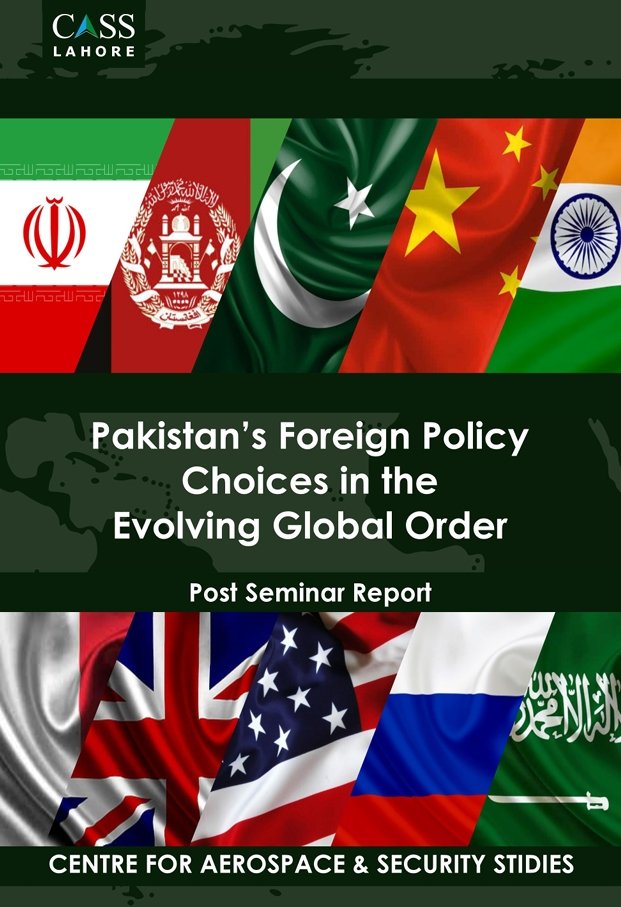
Post Event Report
A comprehensive report capturing expert analyses, strategic insights, key recommendations, media coverage, and event highlights.
Guest Speakers
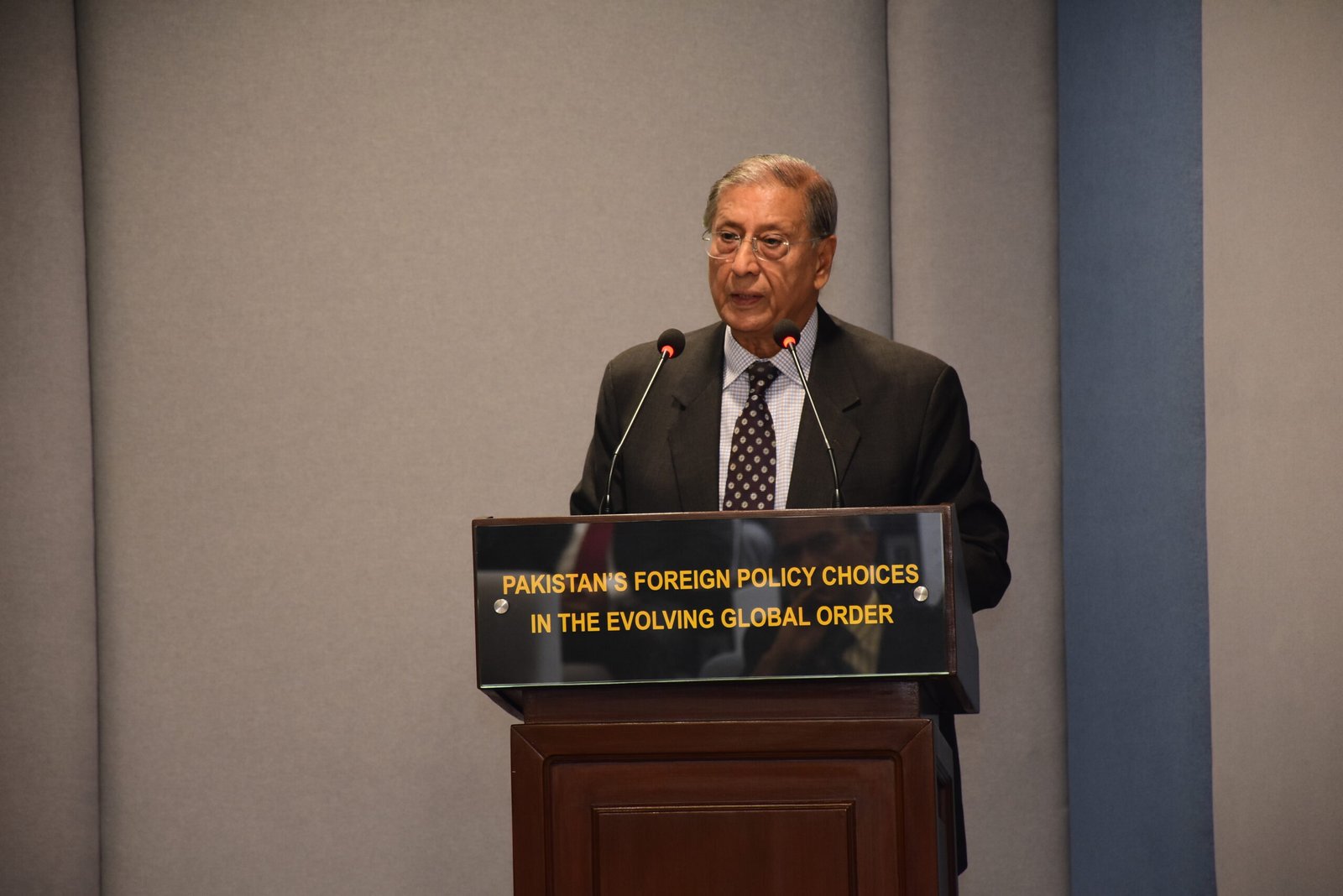
Ambassador Javid Husain (Retd)
Former Ambassador of Pakistan
Ambassador Naghmana HashmI (Retd)
Former Ambassador of Pakistan
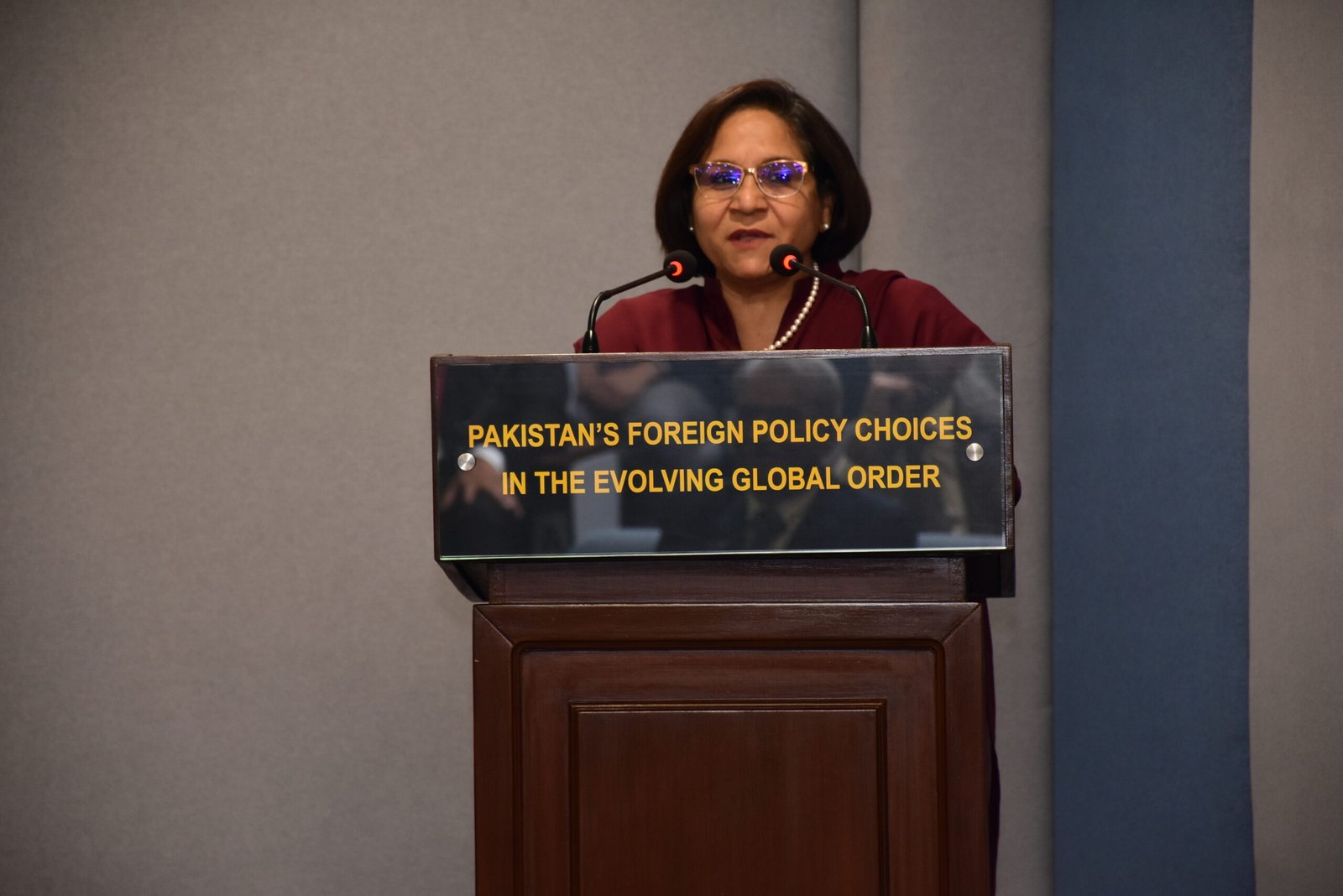
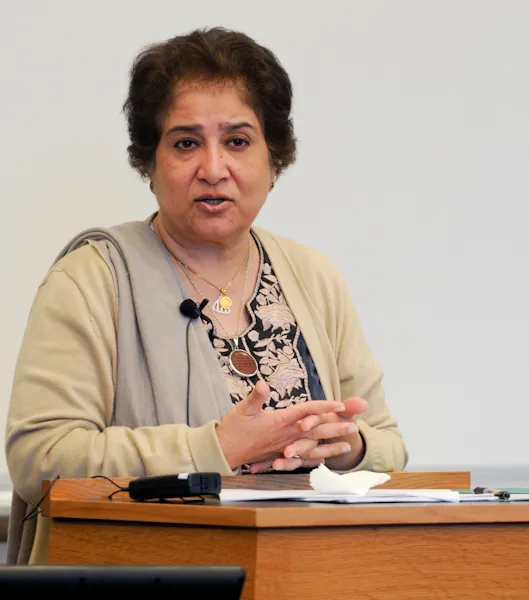
Ambassador Riffat Masood (Retd)
Former Ambassador of Pakistan
Ambassador Asif Durrani (Retd)
Pakistan’s Special Representative on Afghanistan
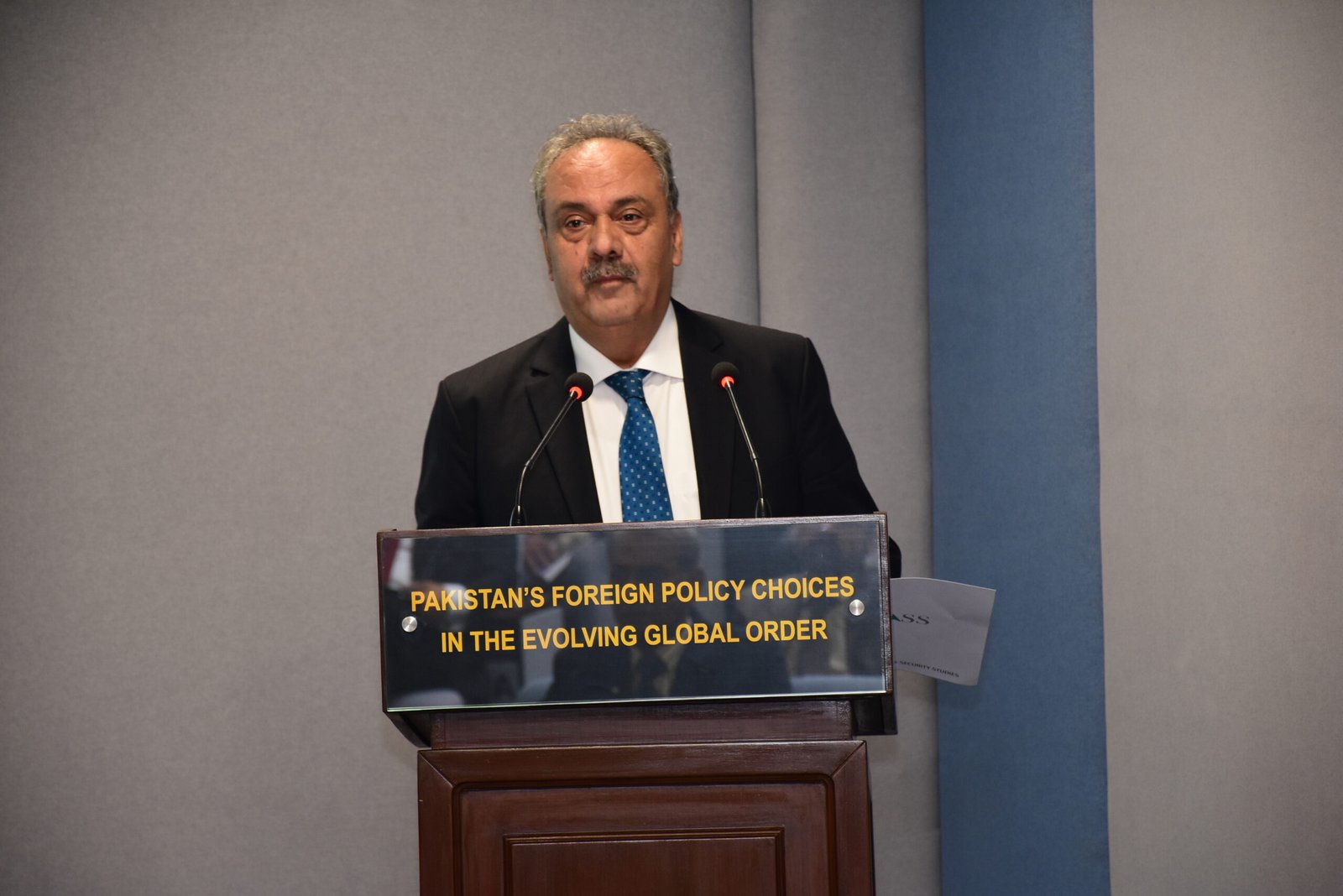

Event Chair
Air Marshal Asim Suleiman (Retd)
President, CASS Lahore

Event Coordinator
Ambassador Muhammad Haroon Shaukat (Retd)
Director Foreign Affairs, CASS Lahore
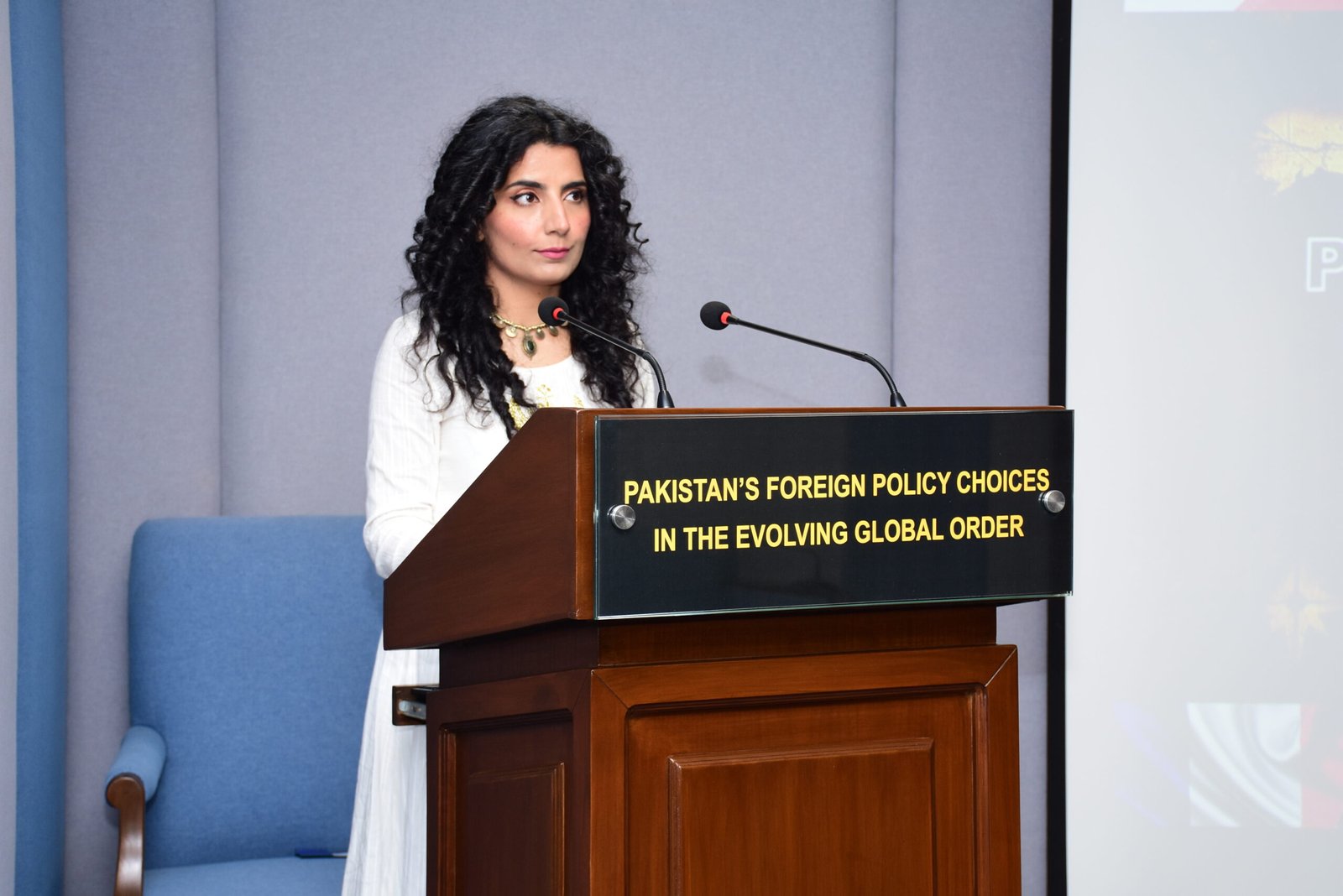
Master of The Ceremony
Sabina Babar
Researcher, CASS Lahore
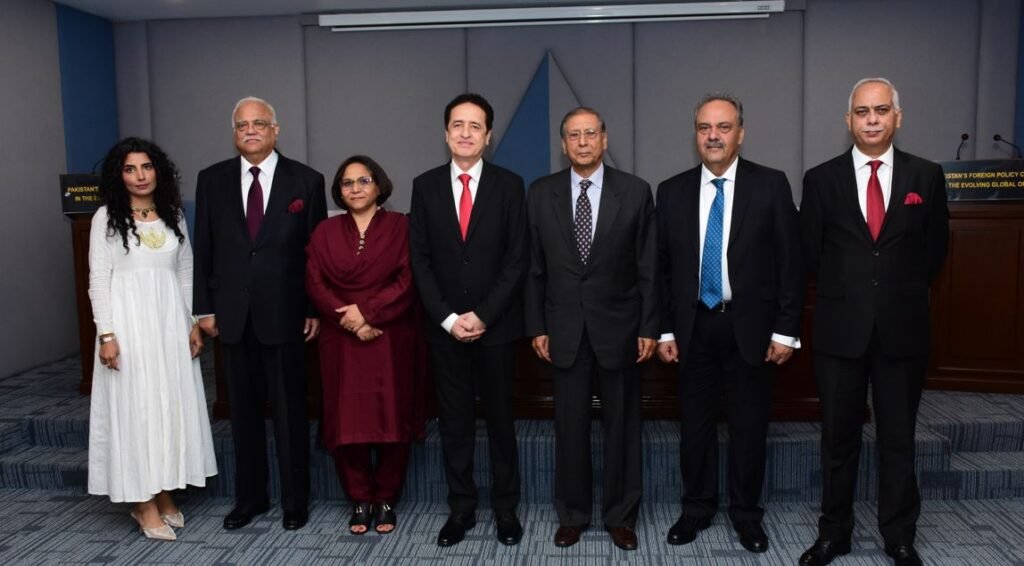
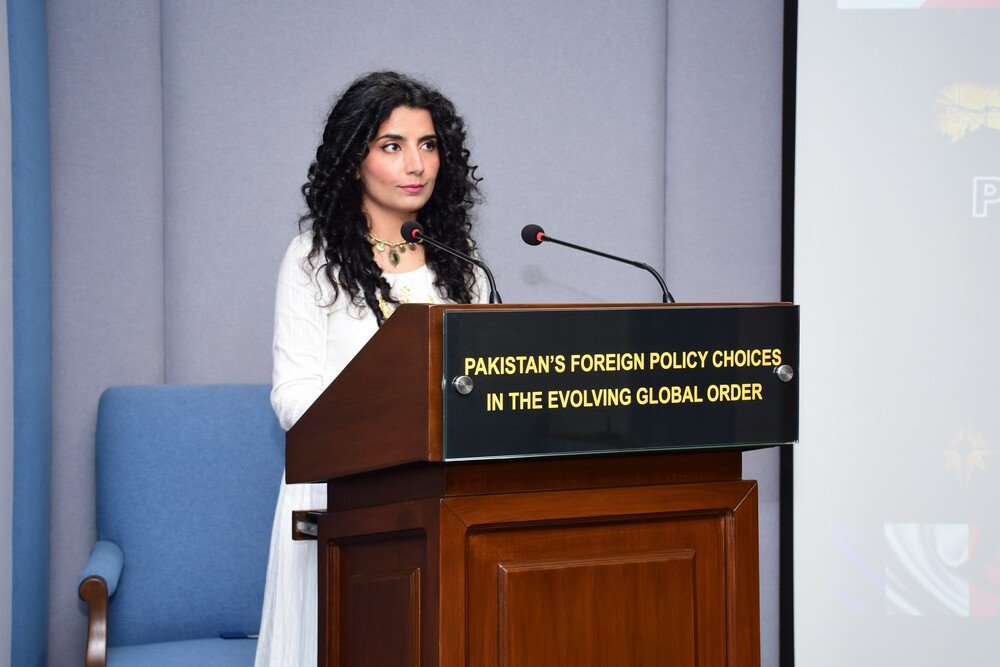
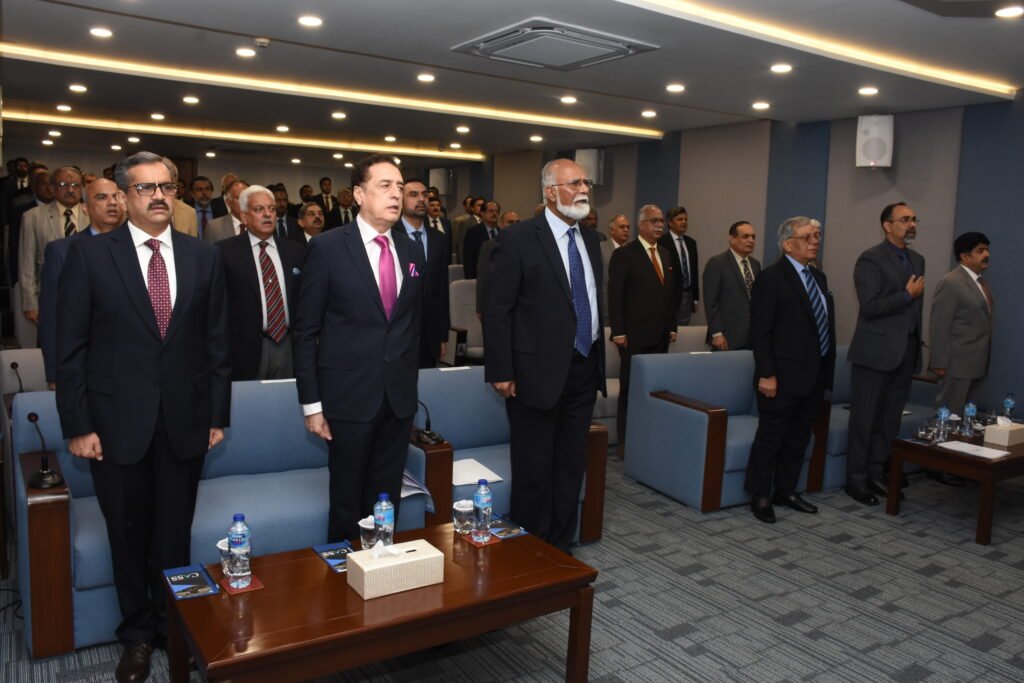
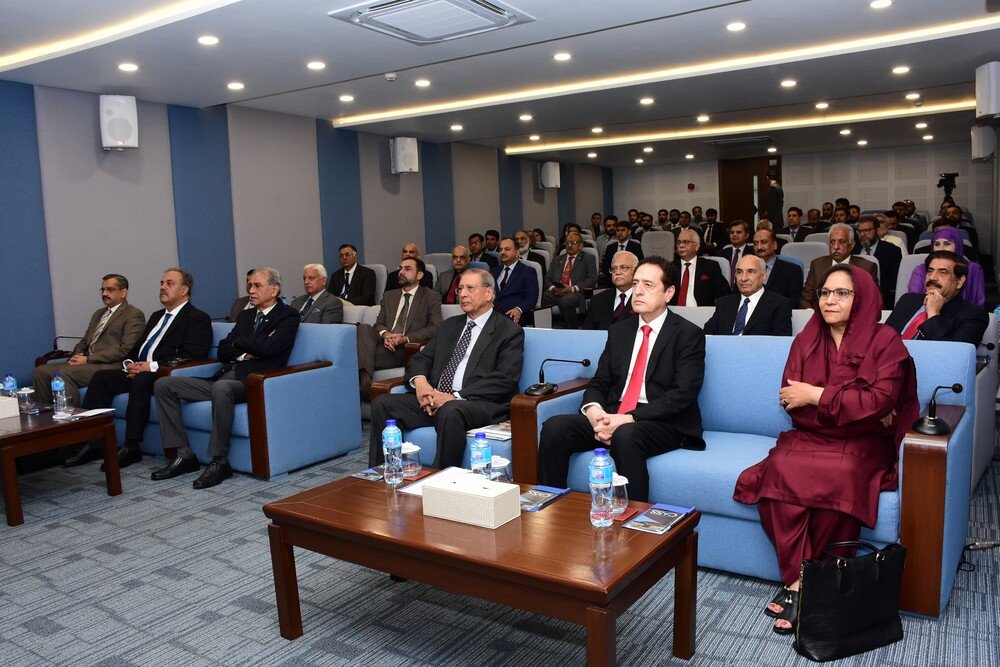
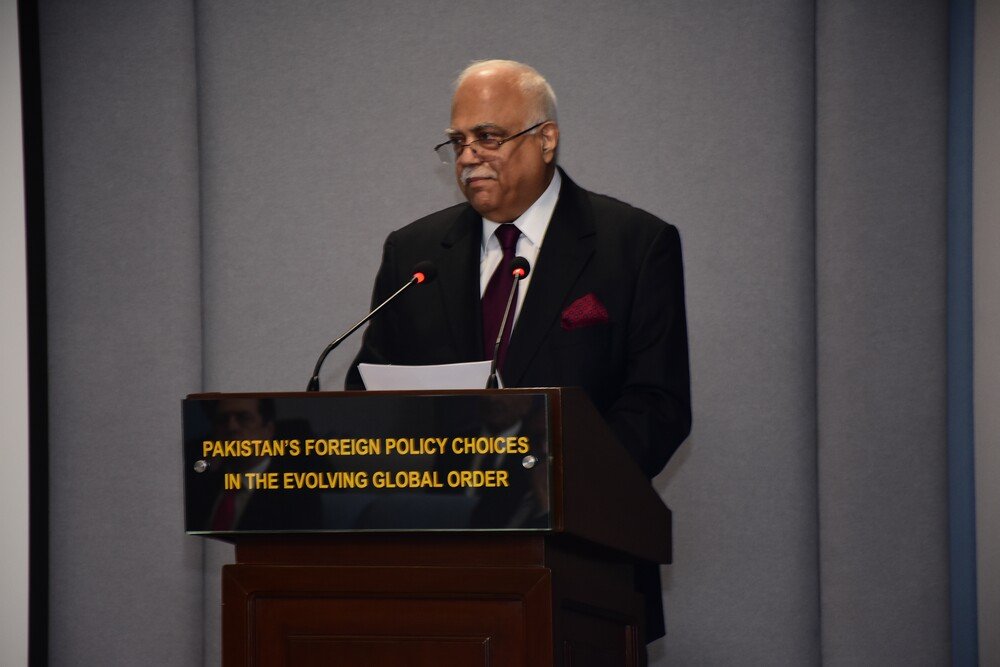
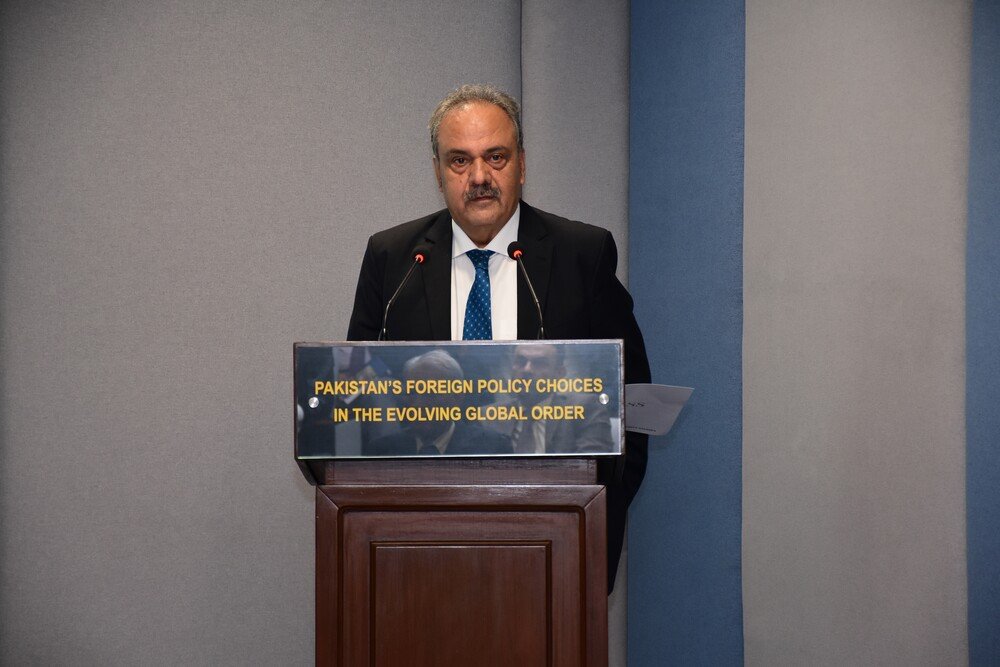
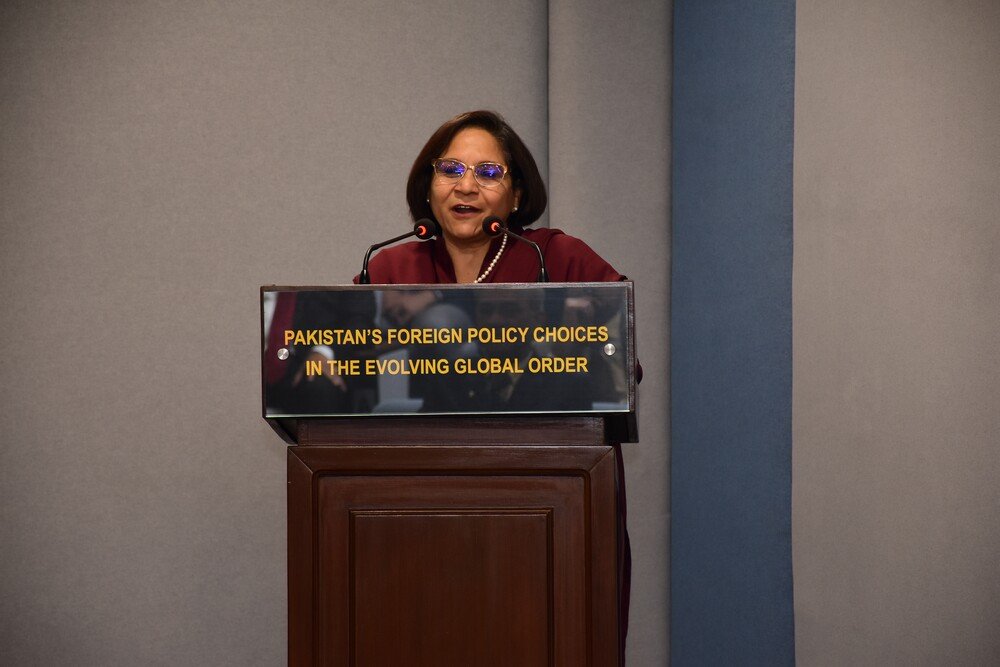
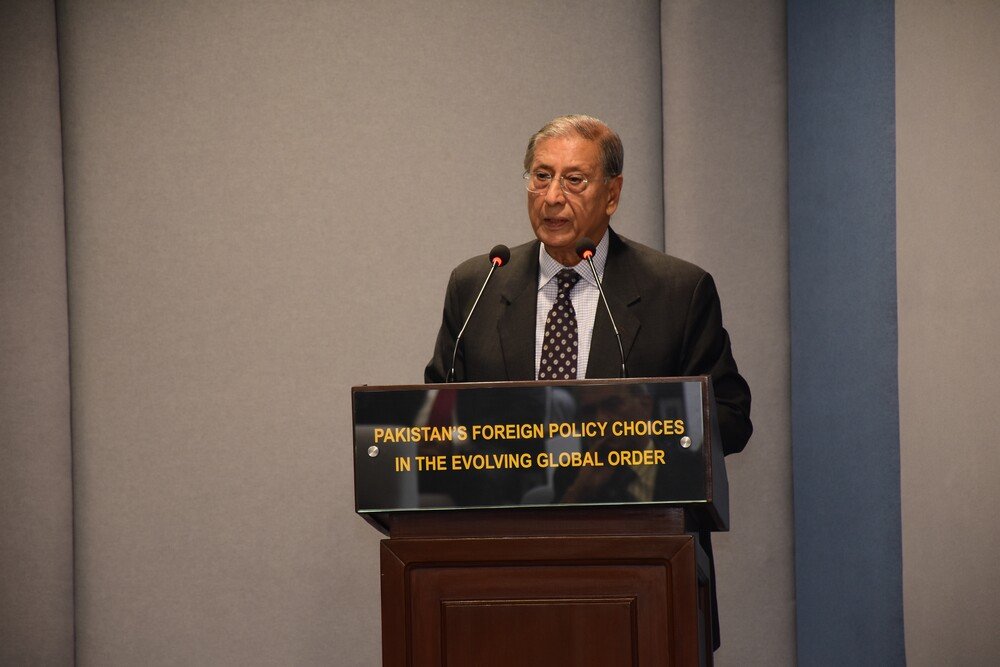
CASS LAhore

The Centre for Aerospace & Security Studies (CASS) was established in July 2021 to inform policymakers and the public about issues related to aerospace and security from an independent, non-partisan and future-centric analytical lens.
CASS Newsletter

@2025 – All Right Reserved with CASS Lahore.
- Home
- About Us
- Research Domains
- Publications
- Events
- Gallery
- Contact Us
@2021 - All Right Reserved. Designed and Developed by PenciDesign



